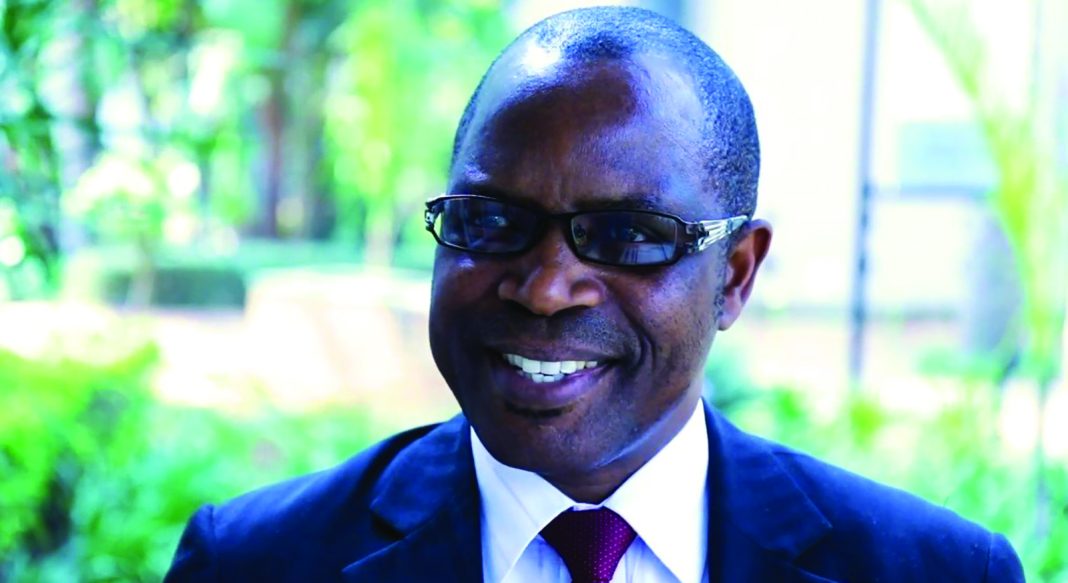The Southern Africa Development Community Groundwater Management Institute (SADC-GMI) will next week hold the 6th annual Southern African Development Community (SADC) groundwater conference in Maseru.
The conference provides a platform for advancing knowledge sharing on sustainable groundwater management at national and transboundary levels across the SADC member states. It will run from November 13 to 15 2024, in conjunction with the ministry of water.
theReporter’s Neo Kolane sat down with the executive director of SADC-GMI, James Sauramba, to get insights into the conference.
What are the sub-themes and key areas of focus for the groundwater conference this year?
The conference this year will be held under the theme ‘Promoting Peace Across Borders Through Conjunctive Water Management’.
Under this main theme, we have three sub-themes:
- Using advanced technologies: This focuses on the use of advanced technologies and systems to promote peace across borders through conjunctive water management. Technologies are used to address the major contaminants, micro-plastics, nutrients and limited water supply, which are all pressing challenges requiring innovations in water treatment, re-use and environmental biotechnologies. This subtheme will address challenges that occur in villages as a result of human habitation and activities.
- Harnessing data: Water scarcity, water disasters, extreme weather events, climate change, mitigation and adaptation continue to rank amongst major risks. Data is therefore fundamental to understand the areas of risk and the contributing factors to the deterioration of water supply security. Harnessing data provides solutions to mitigating these risks. Using geographical information systems and modern communication technology tools will help process the correct data to support systems for water supply management.
- Establishing innovative governance structures: In order to have an impeccable management of systems, we need to have strong strategical arrangements that support the governance of groundwater resource. Effective conjunctive management involves many actors such as politicians, government agencies, water professionals and global stakeholders. This sub-theme considers institutional arrangements to advance water supply for peace as resolving issues has become increasingly urgent and complex. This sub-theme intends to discuss modalities for working together on water across borders and sectors to build resilience to climate change, contribute to disaster risk reduction, provide renewable energy, as well as fostering regional integration and peace.
What outcomes or resolutions does the SADC-GMI expect from the conference, and how will they contribute to sustainable groundwater management in the region?
There will be networking, which will ensure that the relevant sectors are on the same levels in terms of how to manage groundwater in conjunction to surface water. It is also about conjunctive management of both surface and ground resources and ensuring that the combined effect of emerging this two together.
We anticipate to come up with enhanced methodologies for conjunctive management of water resources.
How will the conference address challenges of shared water resources and encourage cooperation between SADC member states in terms of groundwater management?
The science of groundwater ensures that we understand that groundwater does not end at the border, so if there is a border between South Africa and Lesotho, that is not where the water resources for Lesotho end.
Groundwater resources are transboundary, just as much as surface water are transboundary. And the challenges that are experienced for the management of surface water through rivers like the Orange-Senqu and Limpopo are similar to the challenges that groundwater experiences.
We also expect the conference to come up with approaches for groundwater modelling which ensure that the modelling does not look at the hydrological characteristics of the resource other than the administrative boundaries.
When one has management resources across the border, it means by default that one enhances and enforces collaboration and cooperation between countries.
How abundant are groundwater resources, and what are the main sources (e.g., aquifers, boreholes, springs)?
Within our region, we have a huge capacity of renewable groundwater resources. Statistics indicate that we have about 2,500 million cubic metres per capita per year which is available per person.
The reality is that we’ve hardly exploited three percent of that resource for our livelihood and industrial activities. Therefore, there is a huge potential to exploit this resource for our livelihood activities.
In fact, we hardly use enough ground water for agricultural development in our region.
In Lesotho for example, urban migration is putting pressure on water supply systems and causing some people to move into areas where groundwater is recharged.
I believe that in Lesotho, urban migration is increasing demand. So far, it is anticipated that 62 percent of the population will be migrating to urban areas causing some pressure on surface water resources and habitation or settlement. There is also likelihood of pollution to groundwater from human settlement activities which include sanitation auctions and waste disposal.
Does Lesotho have specific groundwater management strategies in place? How are these linked to broader water resource management policies?
Lesotho has got requisite policies. However, like most other countries, groundwater has been the invincible twin, so they are also working very hard to develop a groundwater monitoring network.
In the last four to five years, we have worked with Lesotho to support the country to install groundwater monitoring networks which enable them to understand how much groundwater is available and how much is exploited, as well as the quality.
They (Basotho) have a strategy in place which they are implementing and as SADC members we are helping them. However, it is still work in progress.
Are there specific projects or programmes aimed at expanding access to groundwater resources or improving groundwater quality?
The establishment of SADC-GMI in 2008 and its work to date is a regional programme for improved expansion of the use of ground water for all water security discourses.
The programmes we are implementing in SADC member states are meant to enhance access to groundwater. So with that we have targeted areas such as enhancing the legal and institutional environment that enables the sustainable of groundwater.
We also have led research which is part of what will be reported at the conference to enable practitioners and decision makers to understand, because it is very complex.
What are the synergies or conflicts between surface water projects like Lesotho Highlands Water Project (LHWP) and groundwater resources in Lesotho?
There are no conflicts because for effect, ground water is part of water resources. We have statistics showing that almost 97 percent of all fresh water is underground. Where one sees a river, there also ground water in the background.
Where there are streams drying up, it means communities continues to use ground water to support their livelihoods. In this project we are working in collaboration with the department of water affairs, since they work on the LHWP.









